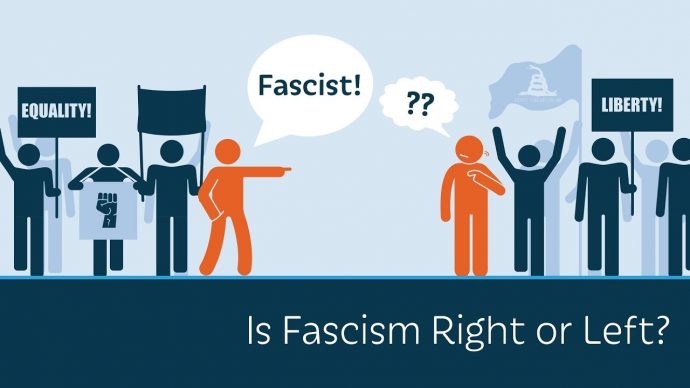This video from Prager University explains what too few people know — what fascism really is:
Every Republican president since the 1970s has been called a fascist. Ironic, no? After all, fascism has its roots in the left. Dinesh D’Souza, author of The Big Lie, explains.
“He’s a fascist!”
For decades, this has been a favorite smear of the left, aimed at those on the right. Every Republican president—for that matter, virtually every Republican—since the 1970s has been called a fascist; now, more than ever.
This label is based on the idea that fascism is a phenomenon of the political right. The left says it is, and some self-styled white supremacists and neo-Nazis embrace the label.
But are they correct?
To answer this question, we have to ask what fascism really means: What is its underlying ideology? Where does it even come from?
These are not easy questions to answer. We know the name of the philosopher of capitalism: Adam Smith. We know the name of the philosopher of Marxism: Karl Marx. But who’s the philosopher of fascism?
Yes—exactly. You don’t know. Don’t feel bad. Almost no one knows. This is not because he doesn’t exist, but because historians, most of whom are on the political left, had to erase him from history in order to avoid confronting fascism’s actual beliefs. So, let me introduce him to you. His name is Giovanni Gentile.
Born in 1875, he was one of the world’s most influential philosophers in the first half of the twentieth century. Gentile believed that there were two “diametrically opposed” types of democracy. One is liberal democracy, such as that of the United States, which Gentile dismisses as individualistic—too centered on liberty and personal rights—and therefore selfish. The other, the one Gentile recommends, is “true democracy,” in which individuals willingly subordinate themselves to the state.
Like his philosophical mentor, Karl Marx, Gentile wanted to create a community that resembles the family, a community where we are “all in this together.” It’s easy to see the attraction of this idea. Indeed, it remains a common rhetorical theme of the left.
Read more of the transcript: Prager U

